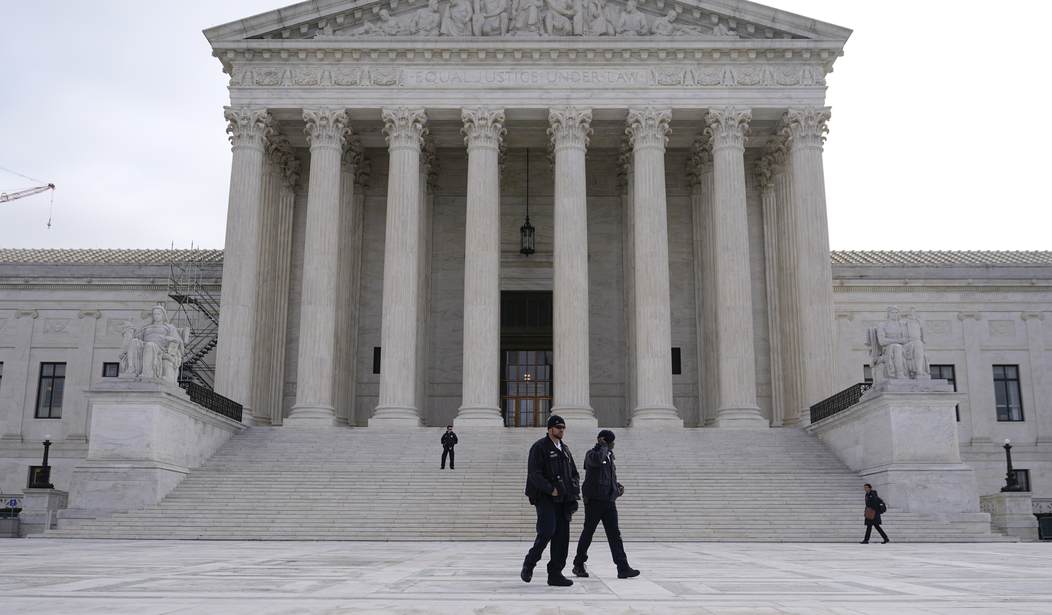The Supreme Court’s recent decision on home equity theft is already having a positive impact, especially for those whose property rights are being violated by their state and local governments. A recent report noted that two outstanding cases in Nebraska involving home equity theft have been decided in favor of folks who had their money and property stolen by the government.
This development might be the first of many occurring across the country.
The Pacific Legal Foundation, an organization that has been at the forefront of the fight against home equity theft and other forms of government abuse, announced some good news about some of the battles it has been fighting in Nebraska:
Only two weeks removed from Pacific Legal Foundation’s major Supreme Court victory against home equity theft in Tyler v. Hennepin County, there is once again cause for celebration, especially if you live in Nebraska.
In Tyler, the Court unanimously ruled that Minnesota’s use of home equity theft—when governments and their private partners satisfy property tax debt by taking a person’s home, selling it, and keeping more than the amount owed—was unconstitutional.
At the heart of the matter was the question of whether home equity theft violates the right to just compensation promised by the Fifth Amendment’s Takings Clause. Relying on judicial precedent and historical principles dating all the way back to Magna Carta, the Court agreed with PLF that it does.
This is excellent news for our Minnesota-based client, Geraldine Tyler, but the landmark decision has implications that extend far beyond her home state.
This week, the spotlight is on Nebraskans for taking a stand against home equity theft, both in the courts and in the legislature.
Tyler v. Hennepin County was a case involving a 94-year-old woman named Geraldine Tyler, who became the victim of home equity theft when she was unable to pay her property taxes. RedState’s Streiff explained:
The Supreme Court ruled 9-0 on Thursday in favor of a 94-year-old widow in her battle with a rapacious Hennepin County, MN, government which sold her home for a small tax debt and pocketed the change.
The story starts in 1999 when [Geraldine] Tyler bought a condo in Minneapolis. In 2010, she decided, for a variety of reasons, to move into a retirement community. The financial strain of paying a mortgage, condo fees, and rent on her retirement apartment caused Tyler to fall behind on her property taxes. By 2015, she owed $2,300 in back taxes, onto which the county had slapped interest and penalties, bringing the total to $15,000. The county confiscated Tyler’s title to the property and sold it at a tax auction for $40,000. The county applied $15,000 of the proceeds to Tyler’s debt and kept the rest. They reasoned that once the county confiscated her title, she no longer owned the property and was not entitled to anything. This left Tyler on the hook for a $50,000 mortgage and $12,000 in condo fees.
The Supreme Court’s ruling in Tyler has made it easier to dispute home equity theft through the courts. But now, the issue is being taken up legislatively. While the Tyler ruling empowers individuals to challenge home equity theft in lower courts, it doesn’t abolish the practice itself, which requires action from state legislatures.
Nebraska Gov. Jim Pillen recently signed LB 727 into law, which included an amendment to eliminate home equity theft in the state. In Massachusetts, the Supreme Court’s ruling is beginning to bring about changes.
Home equity theft inherently violates an individual’s property rights. The practice allows governments and their private partners to seize and sell a person’s home to satisfy property tax debt, often keeping more than the amount owed. This violates the principle of private property ownership, which is a fundamental right recognized by legal systems worldwide. Homeowners should have the right to retain ownership and control over their property without the fear of unjust seizures for unpaid taxes.
Home equity theft can lead to disproportionate and unfair consequences for homeowners. The process often fails to consider the individual’s financial circumstances or the actual value of the property. As a result, homeowners lose their homes even if the tax debt owed is relatively small compared to the overall value of the property. This can have severe impacts on families and communities, resulting in displacement, financial instability, and a loss of generational wealth.
Home equity theft also raises concerns about due process and just compensation. Taking someone’s home as a means of satisfying tax debt should involve a fair and transparent legal process. However, in many cases, homeowners have limited opportunities to defend themselves or negotiate alternative solutions.
Moreover, the practice often allows governments and their partners to retain any surplus proceeds from the sale of the seized property, going beyond the amount owed in taxes. This lack of fair compensation further compounds the injustice of home equity theft and raises constitutional concerns regarding the Fifth Amendment’s Takings Clause, which guarantees just compensation for seized property.
Home equity theft is a practice that should never have been allowed. Countless Americans have been robbed by the state through this process. But now, hopefully, the Tyler ruling will prevent this from happening to more people going forward.













